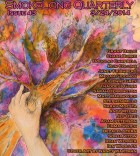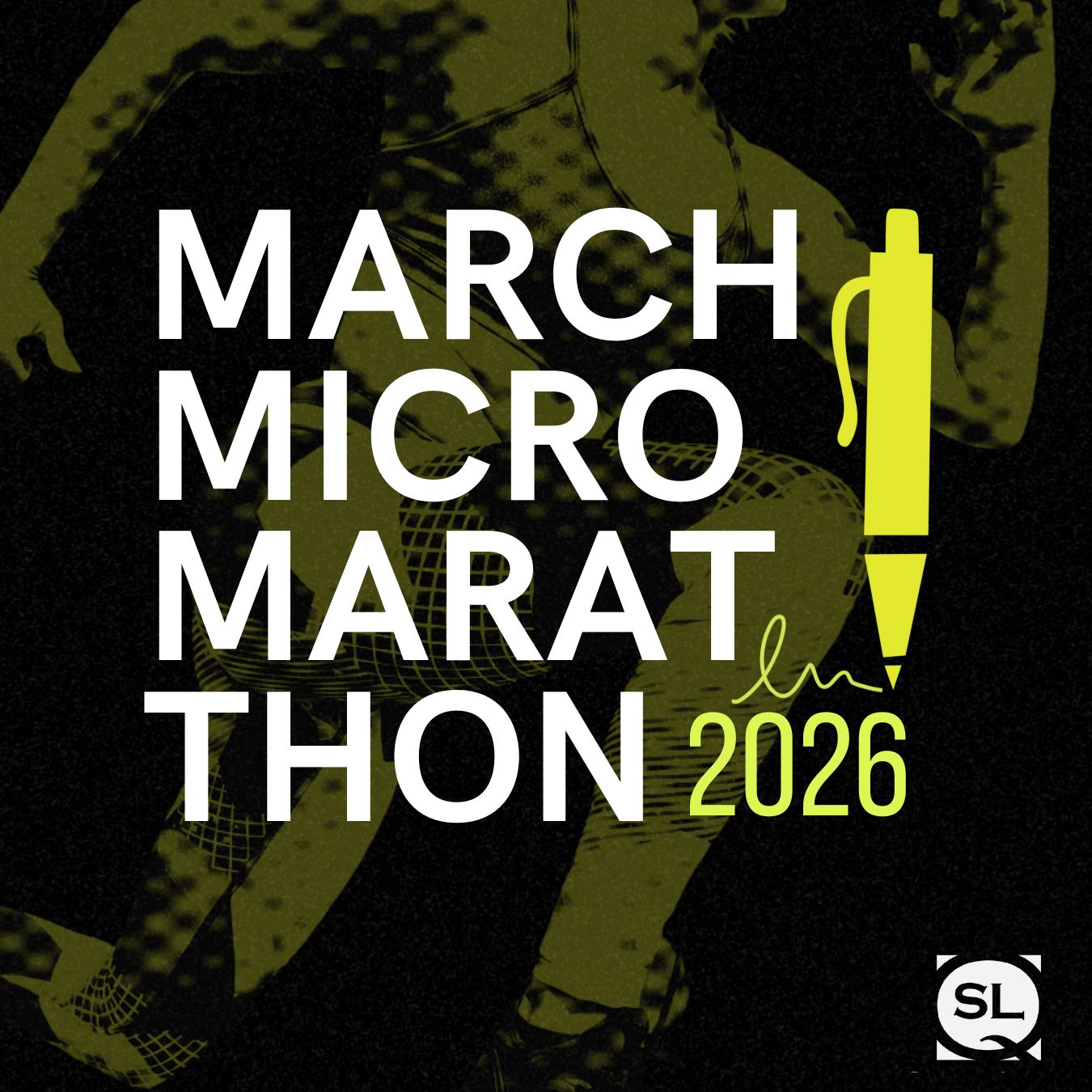Congratulations on winning the recent Press 53 Flash Fiction Contest announced at the AWP Conference in Seattle. We are delighted to publish “Salvador Dali Eyes” here at Smokelong Quarterly. Let’s talk first about contests: writing for this one, was there a prompt and how did you arrive at this story?
The prompt for this contest was “Visions and Apparitions.” But I wrote the first draft of “Salvador Dali Eyes” about a year ago, without a prompt. I’d been looking at Dali’s work, and it struck me how extraordinarily talented people see the world with their own unique vision. How they just seem to have different eyes from the rest of us. And the phrase “Salvador Dali eyes” popped into my head, as things sometimes do. I liked it, and played with the idea until I eventually linked it to my life as a child.
I grew up in a dysfunctional family, so I understand the coping mechanisms children use when they don’t yet have the cognitive resources to understand and articulate what they’re going through. One escape from that pain and bewilderment is imagination. That’s the one realm where we’re inviolable, free and safe and in command from the first day of our lives to our last. The young narrator of “Salvador Dali Eyes” uses imagination to diminish the threat posed by the people who hurt him, to cope with the disintegration of his family, and to help him with his incipient interest in sexuality, another of life’s bewilderments.
After the first draft, I revisited and worked on the story a couple of times, but wasn’t entirely satisfied. I’ve heard people say one reason they like writing flash fiction is because you can write a finished story in a few days or a week, and I’m sure some people can, but for the most part I’ve found that my stories reach their fullest realization when I’ve nurtured them through many revisions over quite a long span of time.
I’ll work on a flash, put it aside and work on other things, return to it, put it aside again. Some of my flashes have taken me years to write using that method. But it seems to work for me, I think because every time I revisit a story I come at it refreshed and wiser. When I saw the publicity for the Press 53 contest I knew I had a story that fit the prompt perfectly. So I pulled out “Salvador Dali Eyes” again and stuck with it until I felt I finally had it right. One day before the contest deadline. Phew!
Can you talk about your imagery in this piece? It’s so strong and I love the juxtaposition of the clocks melting in a Dali painting and the dryness of the scarecrows and straw.
I’m glad to hear you were taken by the imagery. There are a couple of layers of imagery in this story, imagery from Dali himself, the melting clocks from The Persistence of Memory, probably Dali’s most famous painting, and the sky-walking elephants, which appear in several of his paintings. But I wanted my narrator to generate his own Dali-like imagery too, and he does that when he imagines his father melting, when he imaginatively penetrates the closed door of his sister’s room, and when he envisions himself as a dangerous cloud safe from his tormentors. This story wasn’t easy to write, but it was great fun. I had Salvador Dali eyes of my own for a while.
How would you define the concept of “flash fiction”? What do you think are the most important elements?
Attempting to define flash fiction is a popular intellectual exercise among flash writers, but honestly, definitions in general hold little interest for me. I just don’t have that gene, I guess. I prefer fluidity. Better to go through life as water than as a brick. You can say things about flash fiction that are generally true, such as that it places a premium on economy and precision of language, but that’s more or less true of all literary genres. You can say that flash tends to focus on one particular incident or moment in time, but then you can find a thousand exceptions. Flash, short story, novel, screenplay, whatever, it’s all storytelling, and the essential components of great storytelling never change: a mix of the fresh and the familiar, a skillful and appealing execution, and most important of all, depth and heart.
What flash writers do you look up to and why?
Flash writers don’t come any better than Kathy Fish and Randall Brown. I highly recommend Kathy’s book Wild Life and Randall Brown’s Mad To Live. I recently read another fine collection too, Cynthia Litz’s Imprints. They all have an impressive ability to convey big meaning in little stories, which is what flash at its best does so well. And you see in their work those storytelling essentials I just mentioned. But I read a lot of good flash these days. Flash fiction has really come into its own, and we have a lot of talented people writing it.
What are you working on now? A collection, a novel, a screenplay?
I’m happy to say I have a chapbook of stories, Sunflowers, Rivers and Other Stories, coming out this spring from Monkey Puzzle Press. Mostly flash, with a couple of longer stories. I like writing flash, but I think longer forms might be more suited to my modest talent. So these days I’m working on longer stories, trying to write stories with greater depth and complexity than the one thousand word corral of flash fiction allows. I guess you could say I’ve leaped the fence and I’m out running free in the big meadow, hoping I don’t stumble and fall.



 In its third year, The March Micro Marathon will be, as usual, a prompt-a-day whirlwind for 24 days. You’ll exchange drafts of micro fiction, non-fiction, and prose poetry in small groups and gather for a series of online events (all recorded for participants unable to attend live). We’ll finish with 3 competitions, and participants who are not already in SmokeLong Fitness will be invited to workshop with SmokeLong Fitness until the end of April!
In its third year, The March Micro Marathon will be, as usual, a prompt-a-day whirlwind for 24 days. You’ll exchange drafts of micro fiction, non-fiction, and prose poetry in small groups and gather for a series of online events (all recorded for participants unable to attend live). We’ll finish with 3 competitions, and participants who are not already in SmokeLong Fitness will be invited to workshop with SmokeLong Fitness until the end of April!